“Cultural exchange is Pakistan’s soft diplomacy,” says Ahmad Shah as Arts Council Karachi prepares for the World Cultural Festival
The 39-day event will host artists from over 141 countries
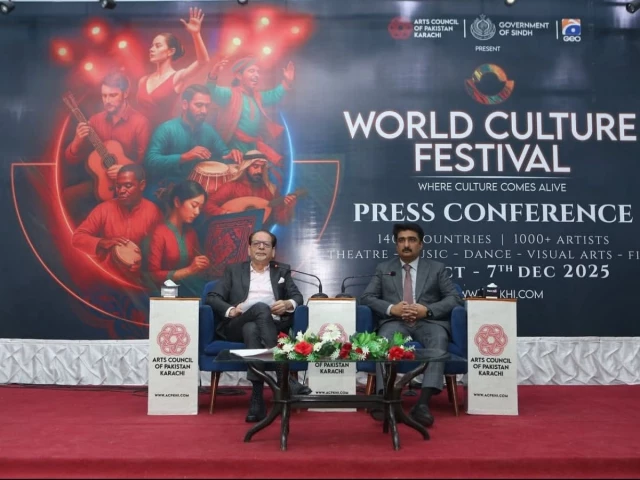
The Arts Council of Pakistan Karachi has announced the return of the World Culture Festival, a 40-day international event that will turn the city into a hub for art, dialogue, and diplomacy. Running from October 30 to December 7, the festival will bring together artists from 141 countries under the theme Global Connectivity for Peace and Environment.
“It is a great honor for us that artists from such diverse countries, such as Asia, Africa, North and South America have confirmed their participation,” said Ahmed Shah, President of the Arts Council.
He explained that the event’s vision was shaped by the crises defining this decade, from Gaza to the global climate collapse. “Our focus is peace, and global connectivity and through cultural activism, we aim to revive and sustain these values.” For that, they have also organized 15 talks, focusing on global peace, the environment, and the genocide in Gaza. “For the first time, even Europe and America, which have traditionally supported Israel and ignored its oppression of Palestine, witnessed millions of people coming out in protest against the genocide, mourning the children and women being killed.”
As such, the festival represents a form of cultural diplomacy. “We are doing what foreign ministries should ideally be doing, bringing together people, hosting them and showing them how peaceful and creative our people are,” Shah said. “Over 500 Pakistani artists will perform in music, theatre, dance, and film.”
Shah confirmed that submissions were received from Indian and Israeli filmmakers, some of which directly criticized their governments. “While we may screen some of them privately later, it is our state policy that we do not publicly feature works from countries engaged in genocide, even when their artists themselves are not complicit.”
He also reflected on Pakistan’s emerging cultural confidence. “Pakistan has demonstrated its resilience and new role in the region, particularly after we successfully countered an attack within just four hours,” he said. “Since then, Pakistan’s global importance has grown, and new diplomatic understandings have emerged in the Middle East, Europe, and the United States.”
Sindh Minister for Culture, Tourism, Antiquities and Archives, Syed Zulfiqar Ali Shah, also spoke about the role of art in shaping the country’s image. “Foreigners who came here went back to their countries with a very good impression,” he said. “Culture is something you can display to others, and it also gives visitors an opportunity to see what our people and our land are like.”
In that effort, visiting artists will be taken to heritage sites such as Quaid-e-Azam’s Mazar, Mohatta Palace, Frere Hall, Keenjhar Lake, and Makli Necropolis. “Art and culture are what connect people,” he said. “We will take visiting artists to these heritage places to show them that Pakistan is a peace-loving country, not a terrorist one.”
The festival’s lineup includes over 800 plus artists across theatre, music, dance, film, and fine arts from more than 100 countries; six international exhibitions; two local showcases; and 25 student workshops led by global directors, musicians, and choreographers.
Preparations are being managed in partnership with the Sindh government, with the Chief Minister personally overseeing security and logistics.

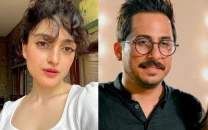
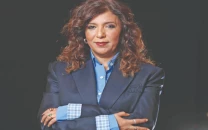
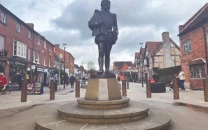


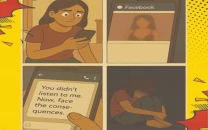
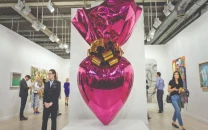
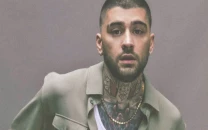












COMMENTS
Comments are moderated and generally will be posted if they are on-topic and not abusive.
For more information, please see our Comments FAQ